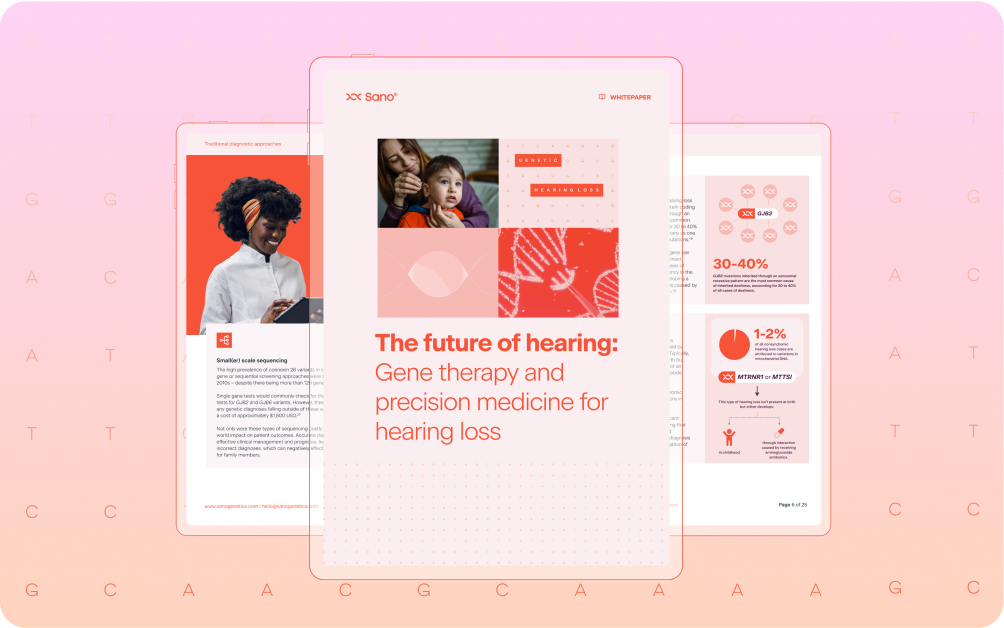The future of hearing: How gene therapy and precision medicine are transforming treatment [whitepaper]

Hearing loss affects over 1.5 billion people worldwide, with nearly half of all cases linked to genetic factors. Despite this, diagnosis and treatment options have remained limited, especially in low- and middle-income countries. However, advances in precision medicine and gene therapy are changing this by offering the potential for earlier diagnosis, targeted interventions, and even hearing restoration.
Why now?
Breakthroughs in next-generation sequencing (NGS) are making it easier to pinpoint the genetic causes of hearing loss, improving diagnostic accuracy and enabling more personalized treatment approaches. Meanwhile, early clinical trials in gene therapy, such as treatments targeting low levels or absence of otoferlin, are demonstrating that hearing restoration is possible for certain genetic subtypes.
However, these advances come with challenges. High costs, accessibility barriers, and ethical considerations remain significant obstacles to ensuring these treatments are widely available. Addressing these issues will be key to integrating gene therapy and precision medicine into mainstream hearing care. In our latest whitepaper, we explore these issues in detail.
Key points from the whitepaper
- Advancements in gene therapy – The latest clinical breakthroughs, including therapies that have successfully restored hearing in some patients.
- The role of precision medicine – How genomic sequencing is transforming the way hearing loss is diagnosed and managed.
- Challenges in access and affordability – Examining the financial, geographic, and ethical barriers to widespread adoption.
- The future of treatment – What’s next for gene-based interventions and how collaboration across research, biotech, and healthcare will shape the field.
Looking ahead
Genetic hearing loss research is progressing rapidly, but ensuring that these innovations reach the people who need them most will require global collaboration, investment, and policy support. Expanding newborn screening programs, improving access to genetic testing, and developing sustainable funding models will be crucial to making precision hearing care a reality.
Download the full whitepaper for an in-depth look at the latest research, current challenges, and future directions in gene therapy and precision medicine for hearing loss.

